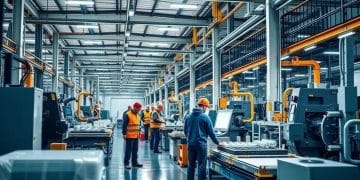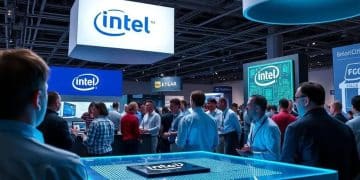AI trends shaping the future of industries
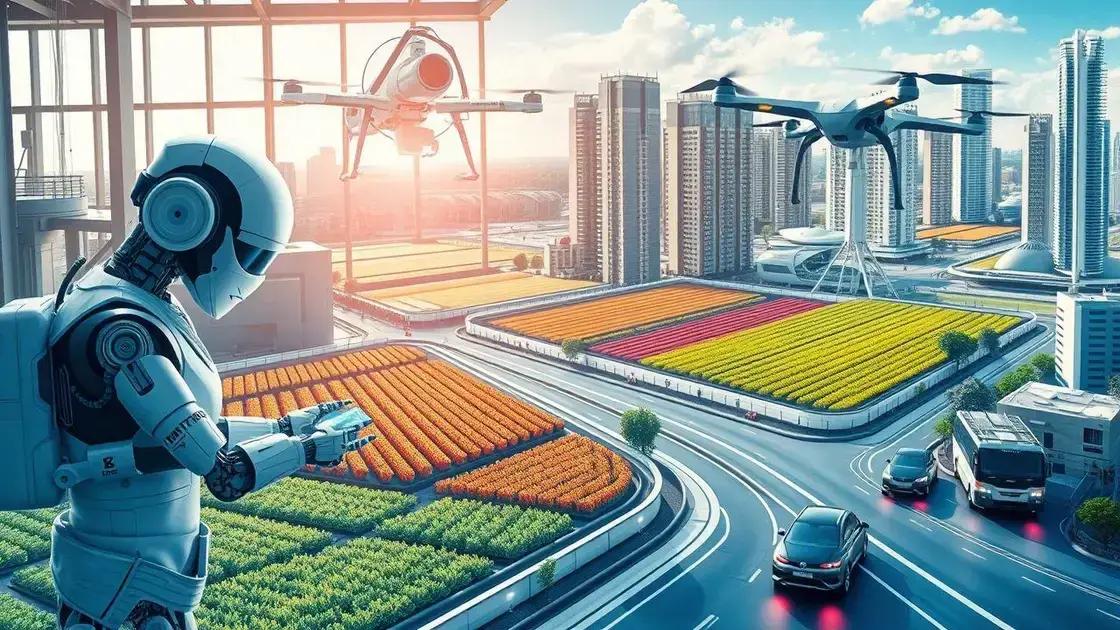
Anúncios
AI trends are reshaping various sectors, enhancing efficiency in manufacturing, optimizing finance through data analysis, and personalizing customer experiences in retail, ultimately transforming everyday life.
AI trends are transforming the landscape of various industries, making it essential to stay informed. Have you ever wondered how these changes could impact your daily life or business? Let’s dive in.
Anúncios
Top AI trends to watch
Understanding the top AI trends is essential for anyone looking to stay ahead in technology. These trends not only shape industries but also provide insights into the future of innovation.
1. Machine Learning Advancements
Machine learning continues to evolve, enabling systems to learn from data without explicit programming. These advancements drive automation and improve decision-making processes across various sectors.
2. AI in Healthcare
Artificial intelligence is playing a significant role in healthcare, enhancing diagnostics and patient care. Innovations like predictive analytics help doctors make better decisions for their patients.
Anúncios
- Personalized medicine being enhanced by AI.
- Improved accuracy in diagnostics.
- AI-driven predictive models for patient outcomes.
The incorporation of AI in healthcare not only streamlines operations but also increases the quality of care. This leads to more efficient treatments tailored to individual needs.
3. Natural Language Processing (NLP)
NLP makes it possible for machines to understand and interpret human language. This has opened doors for applications like chatbots and virtual assistants, making interactions smoother and more intuitive.
As AI trends continue to unfold, the significance of NLP cannot be overstated. Organizations are leveraging these tools to enhance customer experience and operational efficiency.
4. AI Ethics and Regulation
With great power comes great responsibility. The rise of AI brings forth ethical considerations and discussions surrounding regulations. It’s crucial for industries to address these challenges as they adopt AI technologies.
- Ensuring transparency in AI decision-making.
- Addressing biases in AI algorithms.
- Regulatory guidelines for AI deployment.
Engaging with these topics helps create a responsible foundation for the ongoing development of AI solutions. As industries navigate the landscape, proactive dialogue about ethics becomes increasingly important.
Impact of AI on business operations
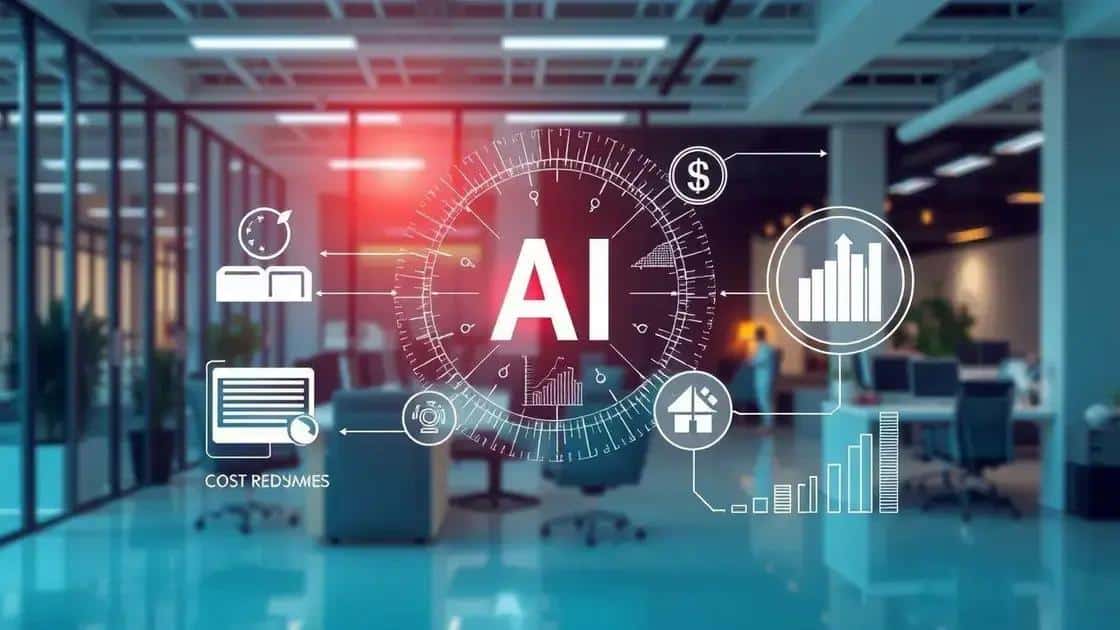
The impact of AI on business operations is profound and transformative. Companies are leveraging AI technologies to enhance efficiency, reduce costs, and improve decision-making processes.
Increased Efficiency
AI systems automate repetitive tasks, freeing up human resources for more strategic initiatives. Through automation, businesses can streamline operations and achieve higher productivity levels.
- Automated data entry reducing human error.
- Chatbots enhancing customer support.
- Predictive analytics improving inventory management.
By using AI tools, organizations not only save time but also create a more agile work environment. This agility allows businesses to respond quickly to market changes.
Enhanced Decision-Making
Another significant impact of AI is its ability to analyze vast amounts of data. Machine learning algorithms can identify patterns and trends that human analysts might miss.
With enhanced analytics, companies can make more informed decisions regarding marketing strategies, product development, and customer preferences. This data-driven approach ensures that businesses stay ahead of the competition.
Cost Reduction
Implementing AI solutions leads to significant cost savings. By reducing operational inefficiencies and optimizing resource allocation, businesses can lower their overhead costs.
- Less manual work means lower labor costs.
- Improved supply chain management reduces excess inventory.
- AI-driven marketing campaigns optimize ad spend.
The cost-effectiveness of AI technologies contributes to improved profit margins. Businesses are often able to reinvest those savings into other growth areas.
Future of AI in everyday life
The future of AI in everyday life is promising and filled with potential. As technology evolves, AI will become even more integrated into our daily routines, enhancing convenience and efficiency.
Smart Homes
One of the most exciting areas is the development of smart homes. Devices powered by AI are becoming more common, allowing us to control everything from lighting to security systems with our voices or smartphones.
- Voice-activated assistants helping with daily tasks.
- Smart thermostats adjusting temperatures automatically.
- Advanced security cameras providing real-time alerts.
These innovations make life easier and provide greater peace of mind, as we can monitor our homes from anywhere.
Personalized Experiences
Artificial intelligence is enhancing user experiences in ways we might not even notice. When you use streaming services or online shopping, AI analyzes your preferences and suggests content or products tailored just for you.
This personalization extends beyond entertainment and shopping. For instance, AI-driven apps can help you manage your time more effectively by learning your habits and preferences. They can remind you of tasks and suggest breaks, ensuring a balanced daily routine.
Healthcare Advancements
In healthcare, AI technology is already making a significant difference. From virtual health assistants to AI-driven diagnostics, the future holds even more promise. Patients will have access to personalized health tracking and telemedicine, allowing for timely interventions.
- Wearable devices monitoring health metrics.
- AI applications predicting potential health issues.
- Virtual consultations improving accessibility to care.
As healthcare becomes more proactive, we can expect better outcomes and a greater emphasis on preventive care.
Key sectors transformed by AI
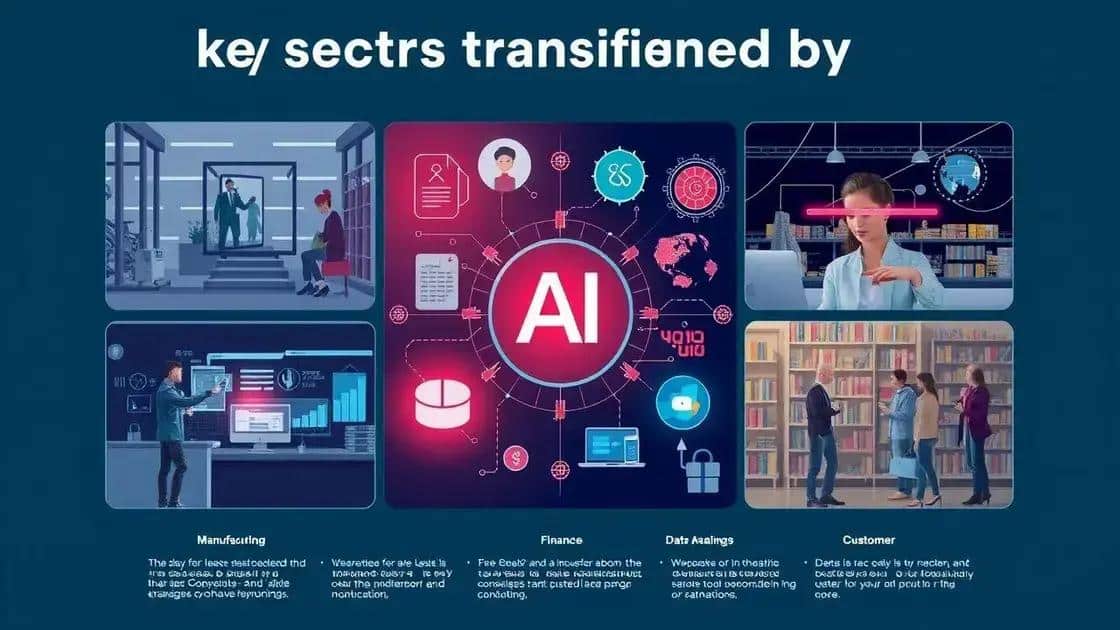
The key sectors transformed by AI showcase the technology’s vast potential in reshaping industries. By adopting AI, these sectors improve efficiency, accuracy, and overall service delivery.
Manufacturing
In manufacturing, AI enhances production processes through automation and predictive maintenance. Machines equipped with AI can foresee failures, allowing for timely repairs that reduce downtime.
- Robotics performing complex assembly tasks.
- Smart sensors monitoring equipment health.
- AI-driven supply chain management optimizing resource allocation.
This integration not only lowers costs but also increases productivity, allowing companies to adapt to market demands quickly.
Finance
The finance sector is also experiencing significant changes due to AI. Algorithms analyze market trends and help with risk assessment and fraud detection, improving investment strategies.
AI applications in finance include automated trading systems that react faster than human traders. This capability leads to smarter investment decisions based on real-time data analysis.
Retail
In retail, AI impacts customer experiences and inventory management. Personalized recommendations based on consumer behavior help businesses boost sales.
- Chatbots providing 24/7 customer support.
- Inventory systems predicting stock needs.
- Dynamic pricing strategies responding to customer trends.
AI tools allow retailers to create a seamless shopping experience and better understand their customers, ensuring loyalty and satisfaction.
FAQ – Frequently Asked Questions About AI Trends
How does AI increase efficiency in manufacturing?
AI automates repetitive tasks and predicts maintenance needs, allowing manufacturers to reduce downtime and improve productivity.
What role does AI play in finance?
AI analyzes market trends and automates trading, helping investors make better decisions and reduce risks.
How can AI improve customer experience in retail?
AI personalizes shopping experiences through recommendations and chatbots, enhancing customer satisfaction and loyalty.
What future advancements can we expect from AI?
We expect AI to further integrate into daily life, improving smart home technologies and healthcare solutions for better outcomes.




